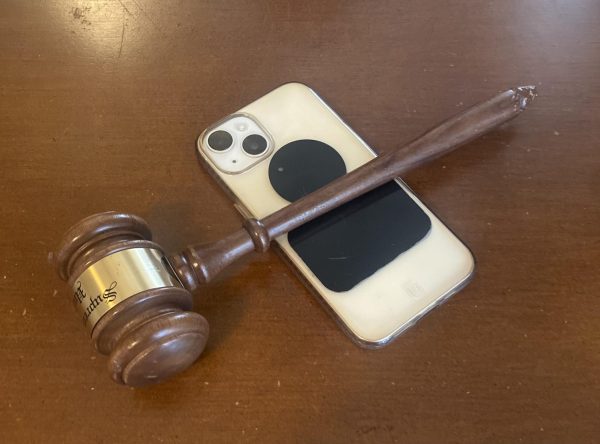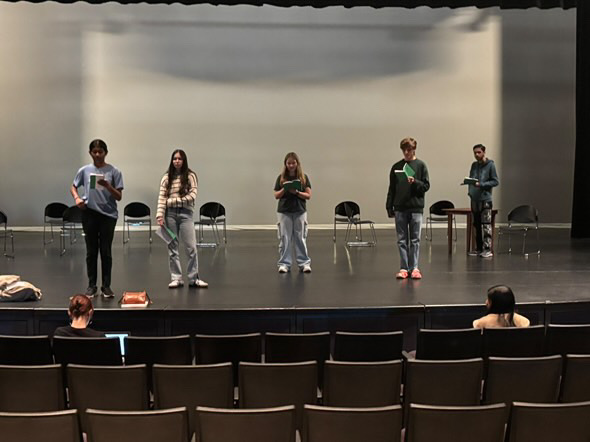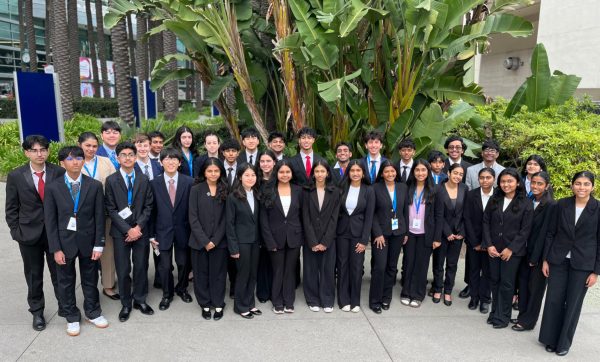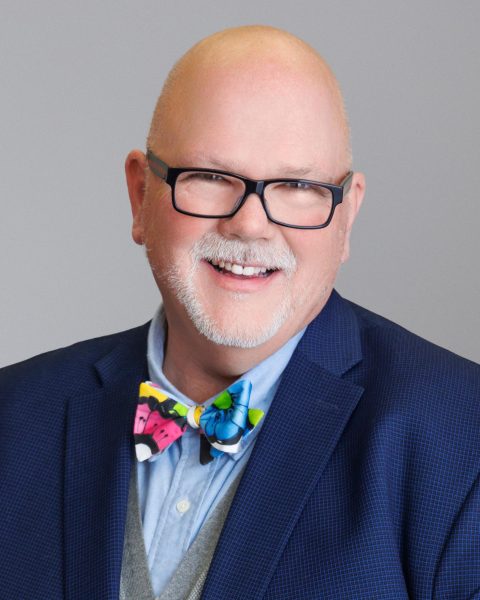Breaking the Binary Boundary

Fellow members and teacher advisors of Wilcox’s GSMA club promotes a safe, educational environment for LGBTQ, Genderqueer, and ally members.
The second semester has long since begun and for many students, teachers reading off names from attendance rosters may be a tedious occurrence of the day to day academic grind. Many recall the first few weeks of school comprised of new teachers and unflattering mispronunciations of names. Thankfully, the majority of teachers accept alternative names to substitute for those that may appear on their attendance sheets. To many, this practice may not seem to bear a great deal of influence over the academic environment itself. Presently, there are many students who fit within the genderqueer community who have a personally specified gender as well as preferred pronouns that typically would not be noticed on an attendance sheet. Fortunately, teachers nationwide have become more mindful of these identity traits just as they have been of a student’s usual nickname in class.
In recent progression with gender usage, more and more individuals have been increasingly aware of how gender plays a role in a student’s formed personal identity, rather than assigned sex or biological distinctiveness. As many students and young individuals begin to actively identify with various gender variants, such as being transgender, gender fluid, gender-non binary, gender-nonconforming and many more, pronoun terminology has readily expanded to match increasing dynamics of self-identifications. For example, individuals may use the titular “he” and “she” pronouns to express a personal gender identity as well as “they” to express a gender neutral term. To help draw attention to this, high schools around the country possess LGBTQ and Ally clubs that promote a safe environment for students with diversified sexualities which are integrated within a club network around campus.
Wilcox currently hosts a GSMA club offering a means of support for those with varying sexualities and genders along the spectrum. Within clubs and communities at school, friends typically remain respectfully aware of students who may identify with gender variants and use preferred pronouns as needed for students. However, within the classroom environment, students within the genderqueer community find that incorrect pronouns may be utilized on a day to day basis. Lucas Staples, The Club President of GSMA, shared his response to the recent surge of teachers using students’ preferred pronouns by stating, “I think that asking pronouns is very important, especially for students who prefer gender-neutral pronouns or pronouns that don’t match their biological sex.” Fellow Wilcox teacher and club advisor, Ms. Magana emphasized the importance of correct gender pronoun usage by stating, “You cannot just assume that people on the inside are what they look like on the outside. There is more than meets the eye. So not only is it important for us as educators to learn someone’s name it is also important to learn their preferred pronouns.” Ninth grade club member Ella Thomas shared her opinion as well, saying “I think teachers should ask about pronouns at the beginning of the year, like asking someone’s name.” Believing that pronoun usage is critical to a comfortable environment, she added, “Normalizing the fact that some students don’t have pronouns that match what they’re born with should be a top priority. It will make for a healthier school environment.”
Within institutions of higher education, like universities across the country, many teachers have become mindful of the diversity of gender presented within a classroom environment. For students within the gender-queer, or gender variating category, many within classroom environments express their gender identity or preferred name usage more openly within college academic settings. Schools such as Harvard University and The University of Vermont have also expanded the use of pronouns used by both teachers and students to surpass the typical binary boy-girl terminology. Some schools offer a guide to understanding the usage of pronouns and proper courtesy to addressing an individual within the gender-queer community. American University’s Center for Diversity and Inclusion offers a full guide to pronoun usage with the purpose of respecting gender diversity and drawing awareness to the ever-expanding usage of gender-based terminology. Outside the typical school based environment, society itself has made recent social professions as well. A new guidance within the NYC Human Rights Law fine individuals for maliciously misusing preferred pronouns of genderqueer individuals. With these set of guidelines and expectations for general and academic environments, gender-queer individuals have found themselves within a more comfortable and accepting environment. However, much of these guidelines are not as freely integrated into academic environments as they are with progressive universities and cities.
Though the school year has barely begun its second term, the new semester brings forth new jumbles of students that have various cultural, religious, and social backgrounds. With these varying social dynamics, mindfulness of all variants can be readily acknowledged within all aspects of society.





